1971년 6월 4일, 헝가리의 마르크스주의 철학자 · 문학사가 게오르크 루카치 (Gyorgy Lukacs, 1885 ~1971) 별세
게오르크 루카치 (헝: Lukács György, 1885년 4월 13일 ~ 1971년 6월 4일)는 현대를 대표하는 헝가리의 문예 사상가이자 마르크스주의 사상가이다.
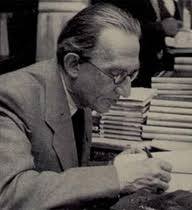
– 게오르크 루카치 (Gyorgy Lukacs)
.출생: 1885년 4월 13일, 헝가리 부다페스트
.사망: 1971년 6월 4일, 헝가리 부다페스트
.배우자: Gertrúd Bortstieber (1923 ~ 1963년), Jelena Grabenko (1914 ~ 1916년)
.자녀: 러요시 야노시, 페렌츠 야노시
.영향을 준 인물: 카를 마르크스, 게오르크 빌헬름 프리드리히 헤겔, 블라디미르 레닌 등
헝가리의 마르크스주의 철학자, 문학사가 (文學史家)로 1885년 부다페스트의 부유한 은행가 가정에서 태어났다. 부다페스트대학에서 박사학위를 취득하고, 베를린대학에서 G.지멜에게, 하이델베르크대학에서 M.베버에게 사사했다. 1908년 『근대연극발달사 : A modern drama fejlodesenek tortenete』 (1911)로 키슈파르디 협회 (19세기초의 작가 키슈파르디를 기념하기 위한 문예협회)의 상을 받았다. 1918년 공산당에 입당하였다가, A.히틀러 등장 후 모스크바로 망명하여 과학학사원 철학연구소에서 미학 · 문학사를 연구했다.
1944년 귀국 후 『젊은 헤겔』 (1948), 『이성 (理性)의 파괴』(1952)를 발간했다. 1956년의 동란에는 페트위단의 지도자로서 반소파 (反蘇派)의 입장을 취하고, 한때는 나지 이무레 정권의 문화장관이 되었다가, 루마니아로 추방되었다. 1957년 사면되어 부다페스트로 돌아와, 미학 연구에 전념했다. 그 밖의 저서로 『미학논평』, 『사회주의와 민주화운동』 , 『역사소설론』, 『청년헤겔』 등과 유고인 『사회적 존재의 존재론 : Zur Ontologie des gesellschaftlichen Seins』, 『윤리학 Ethik』 등이 있다.
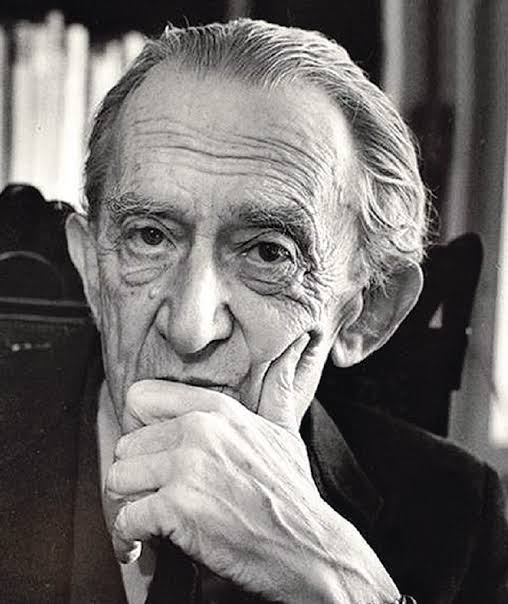
○ 생애 및 활동
– 삶
부다페스트에서 헝가리계 유대인 은행 중역의 아들로 태어났다. 본명은 뢰빙게르 죄르지 베르나트 (헝: Löwinger György Bernát)이다. 부다페스트, 베를린, 하이델베르크 대학에서 철학과 문학을 배우고 지멜과 막스 베버의 영향을 받았다. 자유극장 (自由劇場) 운동에 참가하여 1909년에 《현대 드라마 발전사》를 저술했으나, 제1차 세계 대전 무렵부터 헤겔의 객관적 관념론에 접근하는 동시에 헝가리의 생디칼리스트인 서보 에르빈의 영향을 받았다. 1918년의 독일 혁명 직후 헝가리 공산당에 입당하고, 1919년의 헝가리 혁명에 참가하여 혁명정부의 문교부장관이 되었다. 혁명이 실패하자 빈으로 망명하여, 《역사와 계급의식》(1923), 《레닌》(1924)을 써서 혁명이 좌절한 이유와 마르크스 주의의 주체성 (主體性) 문제를 추구했다. 1929년 모스크바에 가서 마르크스·엥겔스 연구소원이 되고, 한때 반 (反)파시즘 투쟁을 위해 유럽으로 돌아가기도 했으나 전쟁 중 대부분을 모스크바에서 연구 활동을 하며 〈발자크론〉을 비롯하여 많은 근대문학 · 사상사에 관한 논문을 집필. 1945년 헝가리 독립과 함께 부다페스트 대학에 돌아갔다. 1956년 헝가리 혁명에서 너지 정권에 가담, 한때 루마니아로 망명했으나 얼마 후 귀국하여 출생지인 부다페스트에서 사망했다.
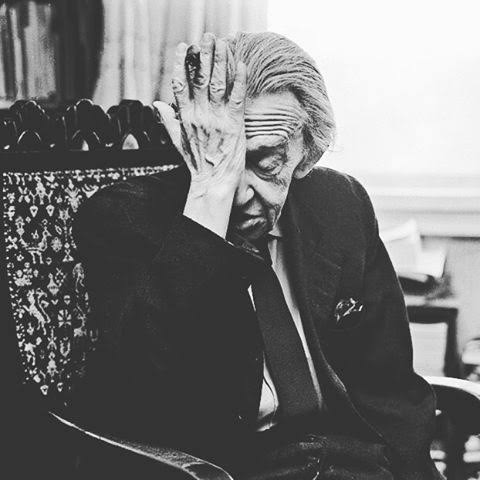
– 사상
.역사와 계급의식
1923년에 펴낸 루카치의 초기 대표작. 1917년의 러시아 혁명은 성공했으나 다음해의 독일혁명과 1919년의 헝가리 혁명은 실패했다. 이 헝가리 혁명에 참가했던 루카치는 망명지인 빈에서 이 혁명이 좌절한 원인을 구명하고 유럽에 프롤레타리아 혁명을 다시 소생시키기 위한 이론적 연구를 시작하여, 〈계급의식〉을 비롯한 7편의 논문을 써서 한 권으로 묶은 것이 이 책이다. 그 당시 마르크스 주의의 주류는 제2 인터내셔널의 이론가들이 형성하고 있었으며, 그들은 인간의 의식이나 행동을 오직 객관적인 사회의 존재 양식으로부터 설명하려 하였기 때문에 역사 속에서의 인간의 능동적 역할을 분명하게 하지 못했다. 이에 대해 루카치는 역사의 변혁에 있어서 의식이 수행하는 적극적 역할을 중요시하고 프롤레타리아의 계급의식만이 역사의 방향을 바르게 파악한다고 하는 이유를 밝히고, 부르주아 계급은 허위의식에 사로잡혀 있다는 것을 비판했다. 또 헤겔과 마르크스를 결합하여 자본주의 사회에서는 인간의 의식과 사회는 끊임없이 분열하고 인간은 물화 (物化)된다는 것을 말하였다. 화폐가 교환의 척도가 됨에 따라 모든 물건이 화폐를 통해 교환 될 수 있다는 생각, 즉 물건 본질에 숨겨진 자본과 노동의 과정을 무시해버리는 왜곡된 의식과정인 물신화 (物神化)가 생겨나게 되었다. 물신화로 인해 사람들은 풍요로운 세상에서 살고 있다는 허위의식 속에서 현실세계를 인식하게 된다. 즉 허위의식은 자본주의 사회에 대한 합리적이고 적절한 이해를 방해함으로써 사람들이 계급의식을 가질 수 없도록 만들며 (원용진, 새로 쓴 대중문화의 패러다임, 한나래, 2010), 그 극복의 길을 추구했다. 마르크스 주의에 있어서 이데올로기론과 인간 소외의 사상에 관한 선구적 업적이다.
.실존주의냐, 마르크스주의냐
1951년에 펴낸 루카치의 후기 대표작으로 1948년에 프랑스어 번역판이 나왔으나 독일어판이 정본이다. 1945년 헝가리 해방과 함께 부다페스트 대학에 귀임한 루카치는 다음해에 제네바의 국제회의에 참석하고 마르크스 주의의 입장에서 야스퍼스나 메를로 퐁티 등 실존주의자와 토론을 벌였다. 이 책은 이 논전을 기초로 하여 실존주의 비판과 마르크스 주의의 현대적 과제를 제시한 5편의 독립된 논문으로 구성되었다. 루카치는 현대의 실존주의를 우선 그 사상사적 계보에서 파악하여, 니체로부터 후설을 거쳐 하이데거에 이르는 니힐리즘을 계승한, 제국주의 단계의 비합리주의적 조류라고 비판한다. 이러한 비합리주의에 합리주의를 대결시키고 이 합리주의가 마르크스주의의 핵심이라고 하는 견해는 《젊은 헤겔》이나 《이성의 파괴》 등 후기의 루카치 사상사 연구에 일관되는 입장이다. 특히 하이데거, 사르트르, 메를로 퐁티의 철학이 인식론에서는 사이비 객관성에 빠지고, 자유나 도덕에 있어서는 개인주의적인 주관주의에 빠질 수 밖에 없는 이유를 해명한다. 동시에 현대 마르크스주의를 레닌적 단계라고 규정하고, 실존주의(제3의 길)와 대결시켜, 변증법적 유물론의 객관주의적 성격과 반(反)파시즘적 성격을 역설한다.
.이성의 파괴
《이성의 파괴》(Die Zerstörung der Vernunft)는 루카치가 1954년 발표한 저서로 독일 나치즘의 정신적 선구자들에 대해 연구한 서적이다. 이 책은 기본적으로 마르크시즘의 입장에서 씌어졌는데 마치 모든 부르조아적 사상, 다시 말해 변증법적 유물론에서 벗어난 일체의 편향이나 원시공산주의에서 자본주의를 거쳐 사회주의에 이르는 인류의 직선적인 진보적 발전을 학문적 정설로 인정하지 않는 모든 사관이 논리적으로 히틀러적 행동이나 아우슈비치에 연결된다고 주장하고 있다. (J.F.노이로르, 제3제국의 신화: 나치즘의 정신사, 한길사, p.14)
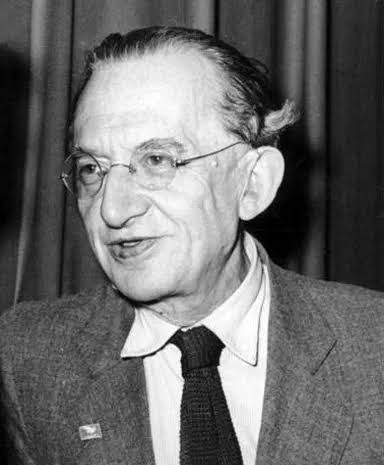
○ 저서
- 주요저서
<정신과 형식>(1910)
<소설의 이론>(1916)
<역사와 계급의식>(1923)
<레닌>(1924)
<부룸 테제>(1928)
<문학과 민주주의>(1947)
<괴테와 그 시대>(1947)
<실존주의인가 마르크스주의인가?>(1948)
<젊은 헤겔>(1948)
<세계문학에서 러시아 리얼리즘>(1949)
<발자크와 프랑스 리얼리즘>(1952)
<독일문학 소사(小史)>(1953)
<이성의 파괴>(1954)
<역사소설론>(1955)
<리얼리즘의 제문제>(1955)
<미적 (美的)인 것의 특성>(1963)
- Books by Lukács in English
A date in brackets is that of the original publication in Hungarian or German.

- Selected articles and book chapters by Lukács in English
- Studies in European Realism. London: Hillway.
- [1937, Rus.; 1947, Hun.] The Historical Novel. London: Merlin.
- [1958, Ger.] The Meaning of Contemporary Realism. London: Merlin.
- [1947, Hun.] Essays on Thomas Mann. London: Merlin.
- [1947, Ger.] Goethe and His Age. London: Merlin.
- [1924, Ger.] Lenin: A Study on the Unity of his Thought. London: New Left Books.
- [1969, Ger.] Solzhenitsyn. London: Merlin.
- Writer and Critic, and Other Essays. Edited by Arthur Kahn. London: Merlin.
- [1923, Ger.] History and Class Consciousness. London: Merlin.
- [1916/1920, Ger.: Die Theorie des Romans.] The Theory of the Novel. London: Merlin.
- [1919, Hun.] Tactics and Ethics. Edited by Rodney Livingstone. London: New Left Books.
- Marxism and Human Liberation. Edited by E. San Juan, Jr. New York: Dell.
- Conversations with Lukács. Edited by Theo Pinkus. London: Merlin.
- [1910, Hun.] Soul and Form. London: Merlin.
- [1948, Ger.] The Young Hegel. London: Merlin.[c]
- The Ontology of Social Being. 1, Hegel’s False and His Genuine Ontology. London: Merlin.
- The Ontology of Social Being. 2, Marx’s Basic Ontological Premises. London: Merlin.
- [1954, Ger.] The Destruction of Reason. London: Merlin.
- [1948, Ger.] Essays on Realism. Edited by Rodney Livingstone. London: Lawrence and Wishart.
- The Ontology of Social Being. 3, Labour. London: Merlin.
- Record of a Life. Edited by István Eörsi. London: Verso.
- Reviews and Articles from “Die Rote Fahne”. London: Merlin.
- Selected Correspondence, 1902–1920. Edited by Judith Marcus and Zoltán Tar. New York: Columbia University Press.
- The Process of Democratization. Albany: State University of New York Press.
- [1951, Ger.] German Realists in the Nineteenth Century. Edited by Rodney Livingstone. London: Libris.
- The Lukács Reader. Edited by Arpad Kadarkay. Oxford: Blackwell.
- [1996, Ger.] A Defence of “History and Class Consciousness.” London: Verso.
- [1910, Hun.] Soul and Form. New ed. Edited by John T. Sanders and Katie Terezakis. New York: Columbia University Press.
- The Culture of People’s Democracy. Edited by Tyrus Miller. Leiden: Brill.
- “The Social Background of the White Terror.” Workers’ Dreadnought, November 20: 1.
- “The Problem of Communist Organization.” Communist Review, October: 41–49.
- “Marx and Engels on Problems of Dramaturgy.” International Theatre, no. 2: 11–14.
- “Propaganda or Partisanship?” Partisan Review 1, no. 2: 36–46.
- “Nietzsche, Forerunner of Fascist Aesthetics.” International Literature, no. 1: 67–80.
- “Essay on the Novel.” International Literature, no. 5: 68–74.
- “The Intellectual Physiognomy of Literary Characters.” International Literature, no. 8: 56–83.
- “Narration versus Description.” Pt. 1. International Literature, no. 6: 96–112.
- “Narration versus Description.” Pt. 2. International Literature, no. 7: 85–97.
- “On Socialist Realism.” International Literature, no. 4–5: 87–96.
- “Thomas Mann.” New Left Review 16: 76–87.
- “Technology and Social Relations.” New Left Review 39: 27–34.
- “Lessing’s Minna von Barnhelm.” International Social Science Journal 19, no. 4: 570–580.
- “The Old Culture and the New Culture.” Telos 5: 21–30.
- “The Twin Crises.” New Left Review 60: 36–47.
- “Lukács on His Life and Work.” New Left Review 68: 49–58.
- “A Final Rethinking.” Social Policy 3, no. 2: 4–8, 56–57.
- “Labour as a Model of Social Practice.” New Hungarian Quarterly 13, no. 47: 5–43.
- “Max Weber and German Sociology.” Economy and Society 1, no. 4: 386–398.
- “On the Phenomenology of the Creative Process.” Philosophical Forum 3, no. 3–4: 314–325.
- “On the Poverty of Spirit.” Philosophical Forum 3, no. 3–4: 371–385.
- “Approximation to Life in the Novel and the Play.” In Sociology of Literature and Drama, edited by Elizabeth Burns and Tom Burns, 280–295. Harmondsworth: Penguin.
- “Franz Kafka or Thomas Mann?” In Marxists on Literature, edited by David Craig, 380–394. Harmondsworth: Penguin.
- “Tolstoy and the Development of Realism.” In Marxists on Literature, edited by David Craig, 282–345. Harmondsworth: Penguin.
- Hauser, Arnold, and György Lukács. “On Youth, Art and Philosophy: A 1969 Radio Meeting.” New Hungarian Quarterly 16, no. 58: 96–105.
- “Bolshevism as a Moral Problem.” Social Research 44, no. 3: 416–424.
- [1938, Ger.]. “Realism in the Balance.” In Aesthetics and Politics, 28–59. London: New Left Books.
- “On Bertolt Brecht.” New Left Review 110: 88–92.
- “An Unpublished Letter by Georg Lukács.” Science and Society 41, no. 1: 66–68.
- “On Walter Benjamin.” New Left Review 110: 83–88.
- “Gelebtes Denken: An Autobiographical Sketch.” New Hungarian Quarterly 24, no. 89: 66–95.
- “The Present and Future of Democratization.” New Hungarian Quarterly 26, no. 97: 100–114.
- “Georg Simmel.” Theory, Culture and Society 8, no. 3: 145–150.
- “Aesthetic Culture.” Yale Journal of Criticism 11, no. 2: 365–379.
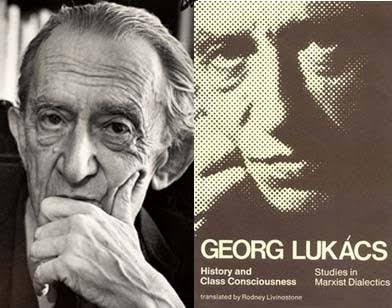
- Selected books on Lukács in English
.General and biographical studies
Arato, Andrew, and Paul Breines. The Young Lukács and the Origins of Western Marxism. New York: Seabury, 1979.
Bahr, Ehrhard, and Ruth Goldschmidt Kunzer. Georg Lukács. Modern Literature Monographs. New York: Frederick Ungar, 1972.
Bewes, Timothy, and Timothy Hall, eds. Georg Lukács: The Fundamental Dissonance of Existence. London: Continuum, 2011.
Congdon, Lee. The Young Lukács. Chapel Hill: University of North Carolina Press, 1983.
Corredor, Eva L., ed. Lukács After Communism: Interviews with Contemporary Intellectuals. Post-Contemporary Interventions. Durham: Duke University Press, 1997.
Feenberg, Andrew. Lukács, Marx, and the Sources of Critical Theory. Oxford: Martin Robertson, 1981.
———. The Philosophy of Praxis: Marx, Lukács, and the Frankfurt School. London: Verso, 2014.
Fekete, Eva, and Eva Karadi, eds. György Lukács: His Life in Pictures and Documents. Budapest: Corvina, 1981.
Gluck, Mary. Georg Lukács and His Generation, 1900–1918. Cambridge, Mass.: Harvard University Press, 1985.
Heller, Agnes, ed. Lukács Revalued. Oxford: Blackwell, 1983.
Illés, László, Farkas József, Miklós Szabolcsi, and István Szerdahelyi, eds. Hungarian Studies on György Lukács. Budapest: Akadémiai Kiadó, 1993.
Joós, Ernest, ed. George Lukács and His World: A Reassessment. New York: Peter Lang, 1987.
Kadarkay, Arpad. Georg Lukács: Life, Thought and Politics. Oxford: Blackwell, 1991.
Lichtheim, George. Lukács. Modern Masters. London: Fontana, 1970.
Löwy, Michael. Georg Lukács: From Romanticism to Bolshevism. London: New Left Books, 1979.
Marcus, Judith, and Zoltán Tar, eds. Georg Lukács: Theory, Culture and Politics. New Brunswick: Transaction, 1989.
Parkinson, G. H. R. Georg Lukács. London: Routledge and Kegan Paul, 1977.
———, ed. Georg Lukács: The Man, His Work and His Ideas. London: Weidenfeld and Nicolson, 1969.
Rockmore, Tom, ed. Lukács Today: Essays in Marxist Philosophy. Dordrecht: D. Reidel, 1988.
Sim, Stuart. Georg Lukács. Modern Cultural Theorists. New York: Harvester Wheatsheaf, 1994.
Thompson, Michael J. Georg Lukács Reconsidered: Critical Essays in Politics, Philosophy and Aesthetics. London: Continuum, 2011.
Zitta, Victor. Georg Lukács’ Marxism: Alienation, Dialectics, Revolution. The Hague: Martin Nijhoff, 1964.
.Special studies
Aitken, Ian. Lukácsian Film Theory and Cinema: A Study of Georg Lukács’ Writings on Film, 1913–71. Manchester: Manchester University Press, 2012.
Bernstein, J. M. The Philosophy of the Novel: Lukács, Marxism, and the Dialectics of Form. Brighton: Harvester, 1984.
Corredor, Eva L. György Lukács and the Literary Pretext. New York: Peter Lang, 1987.
Joós, Ernest. Lukács’ Last Autocriticism: The “Ontology.” Atlantic Highlands: Humanities Press, 1983.
Királyfalvi, Béla. The Aesthetics of György Lukács. Princeton: Princeton University Press, 1975.
Mészáros, István. Lukács’ Concept of Dialectic. London: Merlin, 1972.
Rockmore, Tom. Irrationalism: Lukács and the Marxist View of Reason. Philadelphia: Temple University Press, 1993.
Shafai, Fariborz. The Ontology of Georg Lukács: Studies in Materialist Dialectics. Avebury Series in Philosophy. Aldershot: Avebury, 1996.
Varga, Csaba. The Place of Law in Lukács’ World Concept. Budapest: Akadémiai Kiadó, 1985. (Rev. ed. 1998.)
Vazsonyi, Nicholas. Lukács Reads Goethe: From Aestheticism to Stalinism. Studies in German Literature, Linguistics, and Culture. Columbia: Camden House, 1997.
.Joint studies
Goldmann, Lucien. Lukács and Heidegger: Towards a New Philosophy. London: Routledge and Kegan Paul, 1977.
Marcus, Judith. Georg Lukács and Thomas Mann: A Study in the Sociology of Literature. Amherst: University of Massachusetts Press, 1987.
Pike, David. Lukács and Brecht. Chapel Hill: University of North Carolina Press, 1985.
Tihanov, Galin. The Master and the Slave: Lukács, Bakhtin, and the Ideas of Their Time. Oxford: Clarendon, 2000.
.Bibliographies
Ambrus, János. A Selected Bibliography of Works by Georg Lukács. Budapest: Lukács Archives and Library, 1988.
Lapointe, François H. Georg Lukács and His Critics. Westport: Greenwood, 1983.
Murphy, Peter. Writings By and About Georg Lukács. Bibliographical Series. New York: American Institute for Marxist Studies, 1976.
Nordquist, Joan. Georg Lukács. Social Theory. Santa Cruz: Reference and Research Services, 1988.
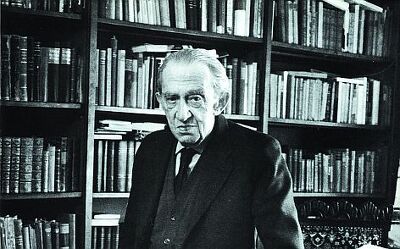
참고 = 위키백과, 교보문고
크리스천라이프 편집부
